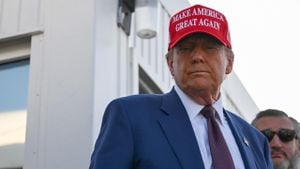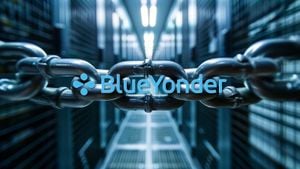Hyundai and Kia, two of the most prominent players in the automotive industry, are currently facing significant scrutiny due to multiple safety recalls affecting tens of thousands of vehicles. With the increasing complexity of modern vehicles, these recalls highlight not just the importance of maintaining high safety standards but also the challenges automakers encounter as they integrate advanced technologies.
Recently, Hyundai announced it would recall over 187,000 vehicles due to safety concerns primarily involving charging systems and wiring issues. The National Highway Traffic Safety Administration (NHTSA) identified the first major issue related to the Integrated Charging Control Unit (ICCU), impacting around 145,235 vehicles, including models from 2022 to 2024 like the IONIQ 5 and the Genesis GV60. The ICCU defect can prevent the vehicle's battery from charging properly, possibly leading to total power loss, which renders the vehicle undriveable. Hyundai has pledged to inspect and replace any faulty ICCUs free of charge and has plans to update associated software for affected owners.
Simultaneously, another recall involves about 42,465 units, including 35,560 Tucsons and 6,905 Santa Cruz models. This recall stems from wiring issues inherent to the console extension assembly. If improperly routed, this wiring can allow the vehicle's transmission to shift out of "Park" without applying the brake pedal, heightening the risk of unintended rollaway of the vehicle. To address this, Hyundai has instructed dealers to reroute the wiring assembly at no cost to the vehicle owners, stressing extra precaution to use the parking brake until repairs can be made.
Interestingly, Hyundai’s problems didn't originate from years of complaints or extensive investigations. They became evident rather suddenly when one of its corporate fleet vehicles unexpectedly shifted, prompting the company to take rapid action to investigate and resolve the issue. Internal notes from Hyundai indicated they began analyzing the problem shortly after the incident, leading to the official recall announcement on November 13, 2024. Owners of affected vehicles, set to receive notifications by January 19, 2025, will be encouraged to bring their vehicles to dealerships for the necessary repairs. Until then, drivers are advised to use their parking brakes diligently.
Kia, Hyundai's sister brand, is also not without its recall announcements. The company informed owners of 62,872 EV6 vehicles from 2022 to 2024 about issues related to the same ICCU. Here too, damage to the charging unit can trigger interruptions to power, which can leave drivers stranded. Successive recalls indicate the persistent nature of challenges surrounding modern vehicle technology, as automakers like Kia and Hyundai strive to balance innovation with customer safety.
These recalls come at a time when electric and hybrid vehicles are gaining traction among consumers. The automotive industry faces intense pressure to uphold safety standards, especially as software systems become more integrated and reliant on complex hardware setups. The high-tech nature of newer models, combined with increasing consumer expectations for reliability, creates fertile ground for potential recalls. Industry insiders caution about the need for automakers to adopt greater transparency and proactive measures within their safety processes, reflecting on incidents like those of Honda and Tesla, which have faced similar challenges with consumer trust.
What's particularly alarming is how rapidly these safety concerns have emerged. Often, manufacturers receive advanced notice about potential issues, but the quick pivot taken by Hyundai following the corporate vehicle incident highlights the unpredictable nature of automotive safety. Analysis of prior recalls shows stark variations between the time issues are reported and when they translate to public notices, often leading to panic among consumers. For example, earlier issues identified with the Hyundai Palisade and Kia Telluride, concerning fire hazards from tow-hitch setups, demonstrated such erratic timelines. Manufacturers sometimes struggle to gauge the full scope of potential defects until they're confrontationally highlighted by unexpected incidents.
Hyundai’s recall outlines specific models affected. For the 2025 Tucson, all vehicles produced between June 20, 2024, and November 13, 2024, are included, and corresponding models of the Santa Cruz manufactured from July 22, 2024, to November 7, 2024, have also been flagged. While no injuries or accidents have been connected to these recalls, the potential for harm remains significant. Hyundai plans to incorporate changes to the manufacturing process to prevent similar incidents going forward.
With the automotive industry continuously progressing toward more digitized operations, managing safety protocols effectively will become increasingly imperative. Consumers, well-informed about recalls, can take proactive steps, such as verifying their vehicles' status via the NHTSA’s website and staying updated with manufacturer communications. Hyundai’s recent experiences serve as reminders of the complexity involved with automotive technology today and the responsibilities of manufacturers to uphold consumer trust.
Hyundai also stresses the importance of communication with its clientele. Representatives are prepared to address inquiries. Owners of affected models can reach Hyundai customer service or local dealerships to gain specific insights on their vehicles. Transparency and prompt actions are pivotal as the company navigates through these safety challenges. Repairs will be carried out without any charges to affected owners, reaffirming Hyundai’s commitment to customer safety and satisfaction. This legal obligation to maintain product safety derives partly from regulatory systems put forth by NHTSA, which mandates automakers are held accountable for any potential risks their vehicles might pose on the roads.
The latest recalls from Hyundai and Kia reveal how swiftly the automotive sector must adapt amid advancing technologies. The manufacturers must demonstrate diligence through continuous communications and corrective measures as they face heightened expectations from regulators and informed consumers. The onus is now on them to convert lessons learned from these experiences to prevent similar occurrences. It's not just about compliance; it also encapsulates the broader conversation on vehicle safety and manufacturers' promise to prioritize the well-being of their customers.



